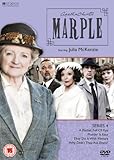Ripper Street: Matthew Macfadyen Plays it Straight on Ripper Street
Ellen Gray, Daily News TV Critic
Ellen Gray: Matthew Macfadyen plays it straight on 'Ripper Street' on BBC America
Posted: Wednesday, January 23, 2013, 3:01 AM
* RIPPER STREET. 9 p.m. Saturdays, BBC America.
PASADENA, Calif. - You might not guess it to see him as Mr. Darcy to Keira Knightley's Elizabeth Bennet in "Pride & Prejudice" or the somber Victorian London police Inspector Edmund Reid in BBC America's new "Ripper Street," but Matthew Macfadyen sometimes has trouble keeping a straight face.
In fact, Jerome Flynn ("Game of Thrones"), who plays Reid's sergeant in "Ripper Street," says Macfadyen and co-star Adam Rothenberg ("Alcatraz") are "the two biggest gigglers I've worked with."
"Adam's terrible. He's terrible!" said Macfadyen in an interview earlier this month during the Television Critics Association's winter meetings. "We . . . got to a stage where we couldn't look at each other."
Given how many of their scenes involve dead bodies - Rothenberg plays a former U.S. Army surgeon with a murky past and a few forensics tricks up his sleeve - some gallows humor is understandable.
But then there was "Frost/Nixon," the 2008 film in which Macfadyen played David Frost producer John Birt.
"There's a lot of giggling with Sam Rockwell, Oliver Platt and I, because for much of it we were kind of in the back of shots . . . so there was a lot of naughtiness. And the more serious Frank [Langella, who played Richard Nixon] and Michael [Sheen, who played Frost] were, the more hysterical" the three became, Macfadyen recalled.
On-screen laughter is in shorter supply in "Ripper Street," in which Macfadyen plays a detective in the East End of London who's haunted by his failure to capture Jack the Ripper - as well as by a tragedy closer to home.
Last week's premiere, involving a man making snuff films with an early camera, was fairly brutal, even by modern standards.
"It's horrifying, isn't it?" said Macfadyen. "My 12-year-old stepson was watching [when it premiered in Britain] . . . and then I realized what it was about - again, it was [shot] a while ago - so we stopped. 'Bed. Bedtime.' "
What makes the grimness of "Ripper Street" bearable is Reid himself, a character Macfadyen sees as "intellectually curious."
"He's very freethinking, and forward thinking. And bright enough to know that he doesn't know everything. He's not one of those policemen" who know it all, Macfadyen said. "He's intelligent enough to know that he needs someone like [Rothenberg's Homer Jackson], however wayward he is."
Reid's a bit of a 19th-century geek, expressing wonder at that early piece of motion-picture gadgetry, even as he's horrified by the use to which it's been put.
Macfadyen was most recently seen - behind a very large mustache he claims to have loved - in "Anna Karenina." "Ripper Street" is his first TV series since leaving "Spooks" (known in the U.S. as "MI-5"), the show where he met his wife, actress Keeley Hawes.
"I wasn't attracted by doing a series. I hadn't done one for a while and I wasn't looking for one," but when he read the script for "Ripper Street," "I just thought, 'Oh, OK,' " he said.
British actors, who don't generally sign up for six or seven years at the start, can afford to jump on scripts they like because it's less of a commitment, he said.
"It's much less daunting than, you know, coming and throwing your hat in the ring during [U.S.] pilot season," something more and more of his countrymen have been doing.
How's his American accent?
"Superb. Flawless. You'd never know," he said, breaking into laughter. "Though there are some things I can't say: 'Similarly.' Say 'similarly,' " he demanded.
I attempted it and stumbled. More than once.
"There you are," he said, laughing. "I can say 'similarly' as a Brit," but "I had to say it in a play" in London in which he played an American, and he couldn't.
"I was about to go do 'Frost/Nixon' here and Ron Howard came to see the play. And I had already got the job, but" was still nervous.
He then did a passable impression of the "Frost/Nixon" director gently correcting his pronunciation of "been": " 'No, it was good, it was good. But it's bin.' Because I had been saying 'bean.' "
- Login to post comments
- 7719 reads






